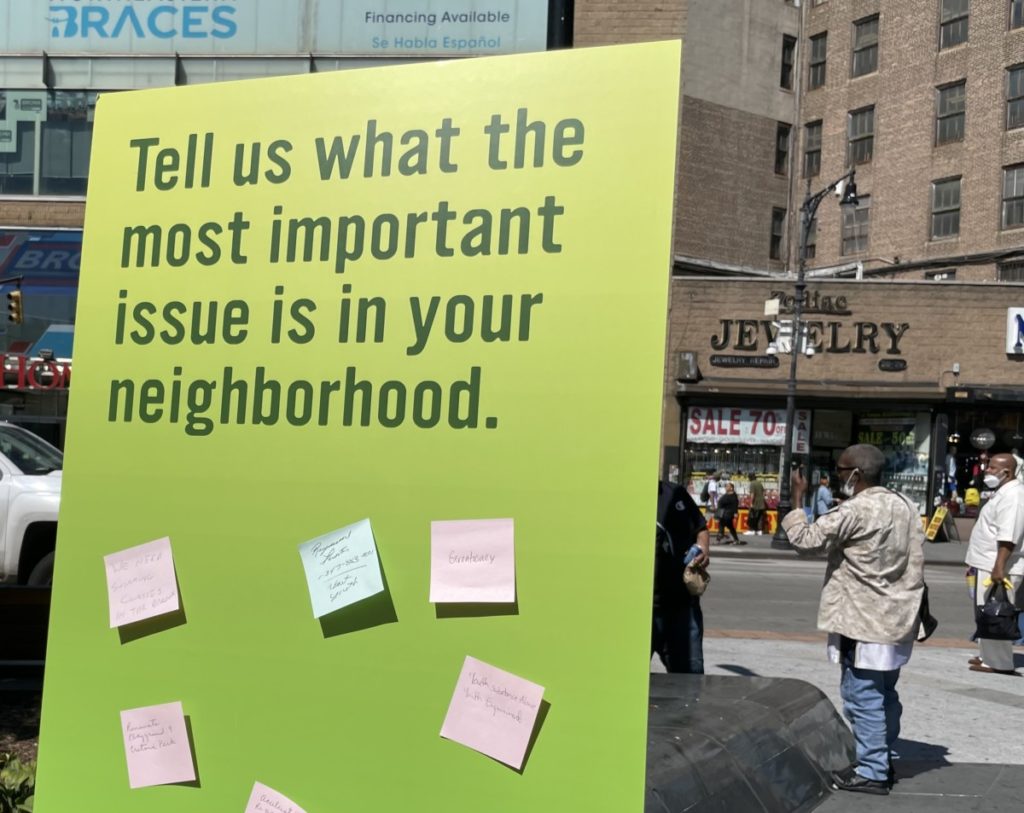The Civic Engagement Commission (CEC) opened submissions for its “People’s Money” initiative Wednesday, allowing New York residents to propose community-focused ideas that could be implemented by the city and funded by a $5-million portion of the mayoral budget.
Members of the CEC plan to gather ideas until Nov. 9, which will then be voted on by New Yorkers through April to ultimately be implemented in June. Residents of all five boroughs above the age of 10 will be eligible to vote and submit ideas.
“Is this $5 million going to change the world? Probably not,” said Wendy Trull, a member of the CEC. “But it’s a start towards getting New Yorkers involved and engaged in their communities and exposed to what volunteerism can do. If someone proposes an idea and sees that idea become real, that’s inspiring.”
Proposals are meant to be local and grassroots in nature. Sarah Sayeed, another member of the CEC, said its intention is to fund projects that are “closer to food and clothing drives than building a new public park.” The initiative’s website specifies that no proposal requiring construction or renovation is eligible for funding.
The CEC kicked-off the initiative with a morning of festivities at Roberto Clemente Plaza in Mott Haven’s business district, which included speeches from Bronx Borough President Vanessa Gibson and other elected officials.
One hour into the event, ten proposals had already been submitted in-person, ranging from broader concepts like “community building” to tackling specific causes like gun violence against Muslim women.

Some attendees were less optimistic about the initiative than its organizers, including Johnny Chavarria, the event’s DJ.
“It feels a bit performative if I’m being honest, like the city is trying to check off a box of their agenda,” Chavarria said. “I’m an activist myself but I believe less in the government funded programs.”
The People’s Money concept has been in the works since November 2018, when New Yorkers voted through a referendum proposed by the Charter Revision Commission mandating a new participatory budgeting process.
The specific plan to distribute the money geographically gets complicated – while proposals can be for any neighborhood around New York City, funding will be allocated based on poverty density, with preference given to TRIE neighborhoods, the 33 neighborhoods the city deemed most negatively impacted by the pandemic, nine of which are in the Bronx.
The $5 million represents just a small fraction of the mayor’s $101 billion annual budget. Since participatory budgeting was added to the city council’s agenda in 2011, $200 million has been spent on projects voted on by residents, according to the city’s website.
For all his skepticism, Chavarria still plans to submit his own proposal to fund an event that focuses on bringing more music to the community, a cause he’s passionate about.
“For the music, it’s worth a shot,” Chavarria said.

